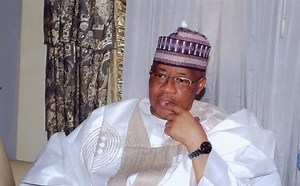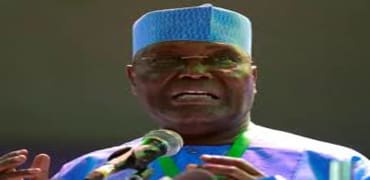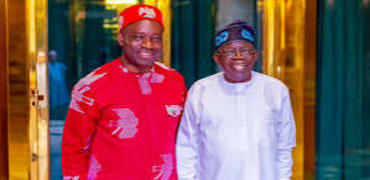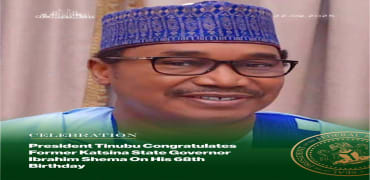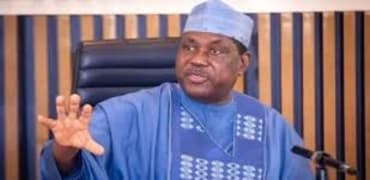IBB Breaks Silence on Executing Childhood Friend: ‘It Was Him or Nigeria’—Vatsa’s Family Demands Justice"
IBB Breaks Silence on Executing Childhood Friend: ‘It Was Him or Nigeria’—Vatsa’s Family Demands Justice"
By Achimi Muktar
Former Nigerian Head of State, General Ibrahim Babangida (retd.), has reignited a decades-old controversy with revelations from his newly launched autobiography, A Journey of Service. In the book, released on February 20, 2025, Babangida candidly addresses the execution of his childhood friend, General Mamman Vatsa, who was implicated in a failed coup attempt. The retired military leader insists that Vatsa’s fate was sealed by “incontrovertible evidence” and the need to protect Nigeria’s stability.
Betrayal or Justice? Babangida’s Side of the Story
In A Journey of Service, Babangida recounts how whispers of a coup plot orchestrated by Vatsa initially seemed like baseless rumors. He dismissed them as jealous gossip about their close bond, but senior officers, including Generals Nasko, Garba Duba, and Wushishi, advised him to investigate.
“I confronted Vatsa after consulting with my senior colleagues,” Babangida writes. “He denied it, but covert investigations revealed he had funded officers to facilitate the coup. The evidence was undeniable.”
Among the damning findings was a reported N50,000 payment from Vatsa to Lt-Col. Musa Bitiyong, allegedly to support the coup. While Vatsa insisted it was meant for a farming project, the military tribunal saw it differently. Intelligence sources also claimed the plot included plans to bomb the Eko Bridge, sabotage Air Force assets, and potentially hijack or shoot down the presidential aircraft.
“I felt a deep personal sense of betrayal,” Babangida admits in his book, emphasizing that their decades-long friendship was not enough to save Vatsa. “I had to choose between saving a friend’s life and securing Nigeria’s future.”
By March 1986, Vatsa and nine others were executed, a decision Babangida calls “a necessary loss.”
Vatsa’s Family Fights Back: ‘He Was Killed Unjustly’
Not everyone agrees with Babangida’s justification. The Vatsa family has long maintained that their patriarch was innocent and executed in a rushed, unfair process.
Jonathan Vatsa, a family member, lashed out at Babangida following the book’s release, insisting that the execution was politically motivated.
“My stance has always been that he was killed unjustly,” Jonathan said. “He never got the chance to appeal. They announced his death an hour before he could even challenge the verdict. Why the rush?”
Jonathan accused Babangida of using his autobiography as a tool for selective apologies, urging him to make restitution for past wrongs.
“He owes Nigerians more than just apologies,” he added. “If he truly wants redemption, he should return everything he acquired unjustly—money, property, everything. That’s the only way Nigerians will take his words seriously.”
IBB Blames Abacha for June 12 Annulment
Beyond the Vatsa execution, Babangida’s book also dives into another dark chapter of Nigerian history—the annulment of the June 12, 1993, presidential election. For the first time, he publicly acknowledges that the election was won by Chief Moshood Abiola but claims that “forces” within his administration, led by General Sani Abacha, orchestrated the annulment.
“I remember saying, ‘These nefarious forces have outflanked me!’” Babangida writes. “I would later find out that General Abacha led the charge to cancel the elections.”
According to Babangida, the decision was made to prevent Abiola’s assassination, which could have plunged Nigeria into civil war.
“While I accept that annulling the election was a subversion of the people’s will, I feared Abiola’s death could lead to war,” he explains.
Abiola’s Family and Activists Reject IBB’s Explanation
Hafsat Abiola-Costello, daughter of MKO Abiola, dismissed Babangida’s claims, saying his admission does nothing to undo the pain inflicted on Nigerians.
“For decades, we have known the truth,” she said. “MKO’s victory was clear, and its annulment remains one of Nigeria’s greatest injustices.”
Renowned activist Dr. Joe Odumakin also criticized Babangida’s “revisionist history,” accusing him of rewriting events to protect his legacy.
“It’s ridiculous that Babangida now blames a dead man (Abacha) for an election annulment he personally orchestrated,” she said. “He had the power to overrule Abacha but didn’t.”
Odumakin further questioned why Babangida’s transition program was riddled with delays, suggesting that the June 12 annulment was not a last-minute decision but a calculated move.
“He postponed elections multiple times before finally canceling June 12,” she added. “Was Abacha responsible for those delays too?”
Final Verdict: A Story Still Unfolding
Babangida’s autobiography has reignited debates over his leadership, particularly his handling of Vatsa’s execution and the June 12 election. While he insists he acted in Nigeria’s best interest, critics argue that his book is a strategic attempt at historical whitewashing.
With Vatsa’s family demanding justice and June 12 still a sore point in Nigeria’s political history, one thing is clear—Babangida’s legacy remains as divisive as ever.



